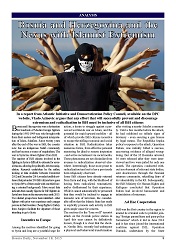
DPC BOSNIA DAILY: Bosnia and Herzegovina and the Nexus with Islamist Extremism
Bosnia Daily: November 18, 2015 – Bosnia and Herzegovina and the Nexus with Islamist Extremism
More...We kindly inform you that, as long as the subject affiliation of our 300.000+ articles is in progress, you might get unsufficient or no results on your third level or second level search. In this case, please broaden your search criteria.

Bosnia Daily: November 18, 2015 – Bosnia and Herzegovina and the Nexus with Islamist Extremism
More...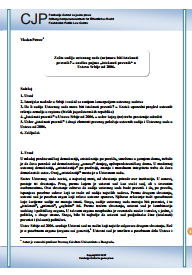
Nema univerzalnog odgovora na pitanje da li sudija ustavnog suda mora biti istaknuti pravnik, čak i pravnik uopšte. Ipak, srpski ustavotvorac je dobro postupio što je predvideo da sudija Ustavnog suda mora biti istaknuti pravnik. Jasno je da će taj uslov još dugo biti teško ostvariv, kao i da će mnoge sudije još dugo biti daleko od istaknutih pravnika u pravom smislu. I da su petnaestoro „odabranih“ redom istaknuti pravnici, u pravnom i političkom okruženju koje se sporo menja u Srbiji, Ustavni sud bio bi organ u senci Vlade i predsednika Republike. Možda je i to razlog što se vrsni i iskusni pravnici, a naročito profesori prava, ne odriču mira koji im pruža kabinetski rad i ne prihvataju se funkcije koja bi, u izvesnom smislu, trebalo da bude „kruna“ njihove karijere. Ustavnu normu koja zahteva da sudija Ustavnog suda bude istaknuti pravnik ne treba dovoditi u pitanje. Nju samo treba ojačati odgovorajućim promenama Ustava, kako bi se stvorile solidnije normativne pretpostavke za nezavisnost Ustavnog suda i njegovih sudija. Prvo, trebalo bi Ustavom precizirati koje uslove mora ispunjavati istaknuti pravnik. Ta ustavna norma nikada neće biti do kraja precizna. Ona ne može iskazati svojstva koja mora imati istaknuti pravnik, a koja su neraskidivi deo ličnosti. U svakom slučaju, preciziranje pojma „istaknuti pravnik“ ne sme se izvršiti Zakonom, jer običan zakonodavac nema kapacitet da odredi šta je to istaknuti pravnik. To je pitanje za onog koji donosi ili menja Ustav. Drugo, preciziranje pojma „istaknuti pravnik“ podrazumevalo bi uvođenje zahteva za ravnomernom predstavljenošću više pravničkih profesija. Dakle, Ustav bi mogao da kaže koliko se najmanje sudija Ustavnog suda bira i imenuje iz reda sudija, visokih državnih službenika, profesora prava itd. Treće, trajanje mandata sudije Ustavnog suda ne treba menjati, ali bi trebalo uvesti zabranu ponovnog izbora. Sudija Ustavnog ne sme da vrši funkciju tako da se u toku prvog mandata priprema za još jedan. Četvrto, broj sudija Ustavnog suda treba redukovati. Umesto 15, bilo bi dovoljno da Ustavni sud ima devet sudija. Nije reč samo o tome da u Srbiji nema dovoljno istaknutih pravnika. Reč je o neophodnosti da Ustavni sud postane jezgro pravničke aristokratije, a ova je, po logici stvari, malobrojna. Dakle, smanjenje broja sudija nalaže izuzetnost institucije, ali i potreba da ovaj organ deluje kompaktnije. U manjem društvu, duh zajedništva se lakše stvara. Peto, smanjenje broja sudija mora pratiti i sažimanje pojedinih nadležnosti Ustavnog suda. Malo društvo uglednih pravnika mora se usredsrediti na najvažnije ustavne sporove, one o zaštiti ustavnosti i zaštiti ljudskih i manjinskih prava. Jednog dana, Ustavni sud može preuzeti i druge nadležnosti, ali treba se kloniti onih netipičnih, kao i onih koji nemaju težinu da o njima Ustavni sud odlučuje. Pravnička elita mora se baviti elitnim, u stvari, najtežim pravno-političkim pitanjima, a pitanja pravne svakodnevice ne smeju da budu na „stolu“ Ustavnog suda. Prema tome, uslov „istaknuti pravnik“ može se preciznije odrediti, ali to, samo po sebi, neće bitno uticati na nezavisnost i kvalitet rada Ustavnog suda, ukoliko se bolje ne „našteluju“ i drugi elementi ustavnopravnog položaja Suda i sudija. Sve to opet nije dovoljno. Bez ustavnog morala, koji najpre podrazumeva svest o ograničenju vlasti u sadržinskom i vremenskom smislu, elitni pravnici će, umesto čuvari Ustava, postati njegovi gospodari, a radi očuvanja privilegija, verne sluge aktuelnim političarima i politici. Jedan narodni poslanik, doktor pravnih nauka, u raspravi na sednici Narodne skupštine povodom izbora sudija Ustavnog suda, primetio je da će način na koji se pristupilo izboru prvih sudija Ustavnog suda po Ustavu od 2006. proizvesti „partijski, krnji, penzionerski (mislio je na kandidate sa liste predsednika Republike od kojih su neki bili pred penzijom, V. P.), laički i potpuno nekvalifikovan, nekompetentan i nestručan sud“. Da nije reč o proizvoljnoj, politički motivisanoj oceni, pokazala je praksa Ustavnog suda do danas. Premda je imao i druge ozbiljne zadatke, Ustavni sud je pao na najznačajnijem ispitu od kako je konstituisan 2007. Odbivši da se upušta u ocenu ustavnosti pravosudnih zakona, kojima je izvršena tzv. reforma pravosuđa u Srbiji, ne usvojivši na vreme ustavne žalbe i žalbe sudija kojima je prestala funkcija po sili zakona (u postupku tzv. opšteg reizbora sudija), zauzevši stav da nije nadležan za ocenu ustavnosti sprovedbenog ustavnog zakona (čl. 7 st. 2 bio je pravni osnov za opšti reizbor sudija kojim je pogaženo ustavno načelo o stalnosti sudijske funkcije), Ustavni sud je potvrdio da ustavni moral u Srbiji nema onu vrednost koju u ozbiljnoj ustavnoj državi mora imati. Kako su „istaknuti pravnici“ u Ustavnom sudu mogli tako da postupaju, oglušujući se o upozorenja ustavnopravne nauke i struke? Tako što nisu ni razmišljali „o svom ugledu i dobrom glasu u stručnoj i svekolikoj javnosti, jer ih nemaju niti ih mogu steći“. Nemoć ustavne norme nekada se čini poražavajućom. Ipak, uslov da sudija Ustavnog suda bude istaknuti pravnik ostaje kao jedna od smernica na putu izgradnje ustavne demokratije.
More...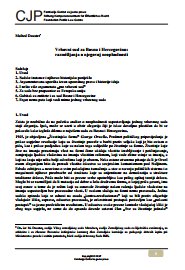
In completion of its statehood, Bosnia and Herzegovina shall establish the up to now missing Supreme Court as exclusively. This institution on top of the judicial hierarchy provides uniform and country-wide justice, ensures equality before law and guarantees better economic competition conditions for (foreign) investments and simultaneously facilitates the country’s accession to European Union.
More...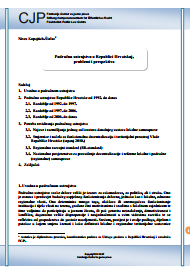
The article reviews the territorial setup of the Republic of Croatia since the transition to the new local government system based on rights, obligations and self-autonomy of local and regional governments, established in 1992, until today. What has been constantly announced since 1992 to today, are the reforms and shifts in the local government setup which would enable more quality provision of public services and performance of all tasks within the local government scope of autonomy, as well as the abandonment of these plans and intentions. The fact is that since local government has been introduced in Croatia, much progress and movements have been seen even on the territory that had long been considered as unperspective. On the other hand, the fact remains that a certain number of municipalities truly does not have any perspective at all. Some open questions are still present - what are the next steps, in what direction should the reduction of the number of municipalities go, should the number of municipalities be reduced and municipalities be adjoined to the cities, and what would be the effects of such actions. Regardless of the consent of proffesionals and politicans and their general commitment to reforms, the basic question is how to make and lead municipalities to cooperate and establish joint administrative bodies; and concentrate and unite their potentials for the common good, since mere reduction of their number will not solve their problems, but on the contrary, multiply them.
More...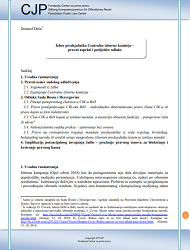
Election campaign and generally election period for the election's in 2018 corresponds to the problem of the implementation of the decision of the Constitutional Court of BiH in the U-23/14 case (dr. Božo Ljubić). In that case Court found that the Election Law of Bosnia and Herzegovina is incompatible with the Constitution of the Federation of Bosnia and Herzegovina and with the international standards of the European Convention on Human Rights and Fundamental Freedoms. So, there are initiatives to change electoral legislation which undoubtedly leads to a conflict of arguments. In those circumtances, political acters decided to make pressure on Central Election Commision of BiH, because they (politicans) didn't menage to timely change Election Law, which means that the key for implementation of the election results is in the hands of Central Election Commision of BiH. Few days before elections, the President of the Central Election Commision of BiH was being elected from amongst members of the Central Election Commision of BiH. By the system of rotation it was time to choose president amongst serb's. By the decision of election of the President of the Central Election Commision of BiH Branko Petrić was elected. Unsatisfied with the decision, Novak Božičković (also serb member of the Central Election Commision of BiH) appealed against the decision to the Appelate Division of the Court of BiH. He (mr. Božičković) argued that the decision was not compatible with the Election Law of Bosnia and Herzegovina, because mr. Petrić was already elected as a president few years ago. In a few days time after his appeal, the Appelate Division of the Court of BiH confirmed the decision of the Central Election Commision of BiH. After that, there were public reactions of the politicians, intelectuals, journalists, who unanimously considered the decision of the Court, and Central Election Commision of BiH as politically motivated. Because of that I considered that there is a need to detaily inform expert and general public of legal aspects and consequences of the decision. Only with that kind of approach there is a chance that we (as a society) can upgrade our democratic consciousness and belief in the judicial system.
More...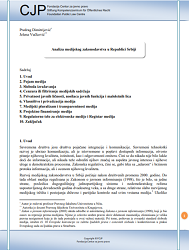
Development of media legislation in Serbia begins after social changes in 2000. Media law in Serbia is regulated by media laws adopted in 2014. Fundamental media laws are the Law on public information law and media, Law on electronic media and the Law on public media services. Even at the time of the adoption of these laws, the individual experts and media workers expressed concerns over how the particular insufficiently explicit provisions should be interpreted and applied. Current media laws in Serbia show a certain discrepancy and retrograde tendency, which further complicates their application and absence of case law. Poor condition in the media is a consequence of growing political influence on the media, as well as a very high concentration of ownership which violates media pluralism principle. The findings of the research show that there are pressures on the media in Serbia, that there are censorship and self-censorship, that representatives of the authorities interpret critically-minded media as their political opponents and that specific media are the means for political propaganda and crackdown of political opponents. This further complicates a realistic state and application of media legislation. Several important problems arise in the implementation of media legislation, namely: transparency of ownership and financing of private media; the need for efficient supervision of state funding and co-financing of the media; strengthening the independence and capacity of the regulatory authority for electronic media; attacks and intimidation of journalists and the need for protection of journalists.Development of media legislation in Serbia begins after social changes in 2000. Media law in Serbia is regulated by media laws adopted in 2014. Fundamental media laws are the Law on public information law and media, Law on electronic media and the Law on public media services. Even at the time of the adoption of these laws, the individual experts and media workers expressed concerns over how the particular insufficiently explicit provisions should be interpreted and applied. Current media laws in Serbia show a certain discrepancy and retrograde tendency, which further complicates their application and absence of case law. Poor condition in the media is a consequence of growing political influence on the media, as well as a very high concentration of ownership which violates media pluralism principle. The findings of the research show that there are pressures on the media in Serbia, that there are censorship and self-censorship, that representatives of the authorities interpret critically-minded media as their political opponents and that specific media are the means for political propaganda and crackdown of political opponents. This further complicates a realistic state and application of media legislation. Several important problems arise in the implementation of media legislation, namely: transparency of ownership and financing of private media; the need for efficient supervision of state funding and co-financing of the media; strengthening the independence and capacity of the regulatory authority for electronic media; attacks and intimidation of journalists and the need for protection of journalists.
More...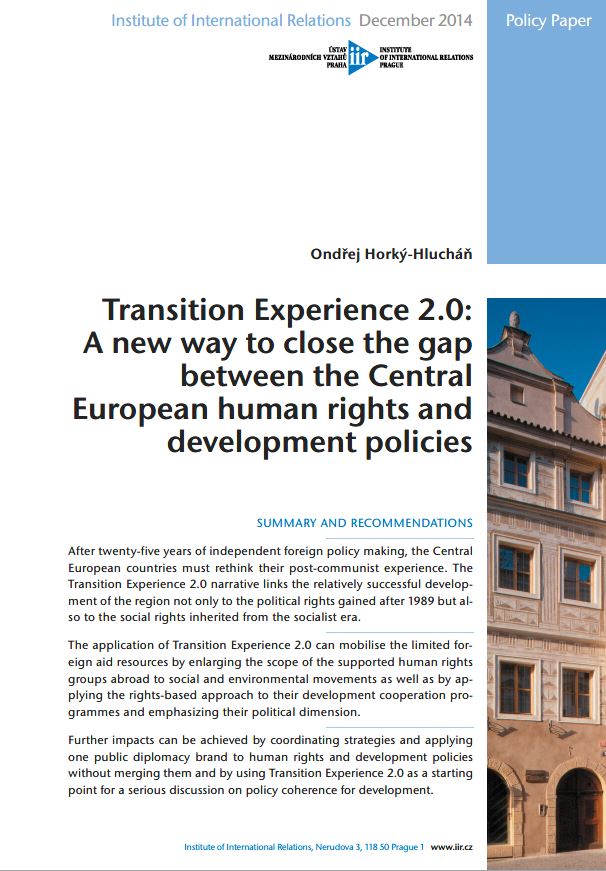
After twenty-five years of independent foreign policy making, the Central European countries must rethink their post-communist experience. The Transition Experience 2.0 narrative links the relatively successful development of the region not only to the political rights gained after 1989 but also to the social rights inherited from the socialist era. The application of Transition Experience 2.0 can mobilize the limited foreign aid resources by enlarging the scope of the supported human rights groups abroad to social and environmental movements as well as by applying the rights-based approach to their development cooperation programmes and emphasizing their political dimension. Further impacts can be achieved by coordinating strategies and applying one public diplomacy brand to human rights and development policies without merging them and by using Transition Experience 2.0 as a starting point for a serious discussion on policy coherence for development.
More...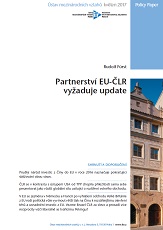
Prudký nárůst investic z Číny do EU v roce 2016 naznačuje pokračující sbližování obou stran. ČLR se v kontrastu s ústupem USA od TPP chopila příležitosti sama sebe prezentovat jako vůdčí globální sílu usilující o rozšíření volného obchodu. V EU se zejména v Německu a Francii po vyhlášení odchodu Velké Británie z EU rodí politická vůle vyvinout větší tlak na Čínu k rozsáhlejšímu otevření trhů a usnadnění investic z EU. Vezme Brusel ČLR za slovo a prosadí více reciprocity vůči liberálně se tvářícímu Pekingu?
More...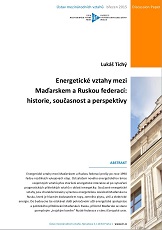
The energy relations between Hungary and the Russian Federation have undergone a number of different development stages since 1990. From the establishment of a new energy framework of mutual relations through the deterioration of the energy interaction to the creation of pragmatic friendly relations in the field of energy. Current energy relations are characterized by a significant energy dependence of Hungary on Russia, which is the main supplier of oil, natural gas, coal and electricity. In the future, we can expect a further continuation of closer energy co-operation and the political rapprochement of Hungary to Russia, with Hungary becoming the notional "Trojan Horse" of the Russian Federation within the European Union.
More...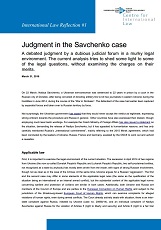
On 22 March, Nadiya Savchenko, a Ukrainian servicewoman was sentenced to 22 years in prison by a court in the Russian city of Donetsk, after being convicted of directing artillery fire to kill two journalists in eastern Ukraine during the hostilities in June 2014, during the course of the “War in Donbass”. The defendant of the case had earlier been captured by separatist forces and taken over to Russian territory by force. Not surprisingly, the Ukrainian government has stated that they would never accept the verdict as legitimate, expressing strong criticism towards the procedure and Russia in general. Other countries have also expressed their disdain, though employing much less harsh wordings. For example the Czech Ministry of Foreign Affairs has also issued a statement on the situation, demanding the release of Nadiya Savchenko, but it has appealed to humanitarian reasons, and has only carefully mentioned Russia’s „international commitments”, mainly referring to the 2015 Minsk agreement, which had been concluded by the leaders of Ukraine, Russia, France and Germany, assisted by the OSCE to work out and uphold a ceasefire.
More...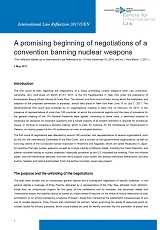
The first round of talks regarding the negotiations of a treaty prohibiting nuclear weapons (their use, production, ownership, etc.) took place on March 27–31, 2017, at the UN Headquarters in New York under the presidency of Ambassador Elayne Whyte Gómez of Costa Rica. The second, and final round of talks, during which the finalization and adoption of the proposed convention is expected, should take place in New York from June 15 to July 7, 2017. The aforementioned first round was preceded by an organizational meeting in New York on February 16, 2017, in the presence of representatives of more than 100 countries, at which the provisional agenda and the rules of procedure for the general meeting of the UN General Assembly were agreed. According to these rules, a two-thirds majority is necessary for decisions on important questions and a simple majority of all present members is required for procedural issues. In contrast to consensus decision-making, which is valid, for instance, for the Conference on Disarmament in Geneva, no country present at the UN conference can veto an adopted decision.The first round of negotiations was attended by around 130 countries, and representatives of several organizations, such as the UN, the International Committee of the Red Cross, and a number of non-governmental organizations, as well as surviving victims of the US-caused nuclear explosion in Hiroshima and Nagasaki, which are called Hibakusha in Japan. All countries that own nuclear weapons, as well as a large majority of Alliance states, including the Czech Republic, and partner countries relying on nuclear protection, especially protection by the US, boycotted the meeting. From the Alliance states, only the Netherlands attended, and from the European Union states, the already mentioned Netherlands, and also Austria, Sweden and Ireland participated. From the partner countries, Japan was present.
More...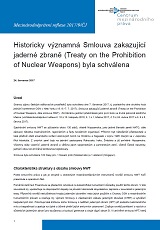
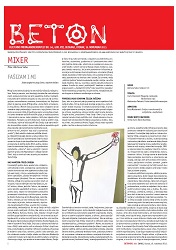
MIXER, Adriana Sabo: Fašizam i mi; ŠTRAFTA, Haris Imamović: Njegoš je najskuplja, Bećkovićeva riječ; Aleksandar Pavlović: Protiv slavističkih vetrenjača; ARMATURA, Ivica Mladenović: Srbija u transformaciji iz socijalizma u kapitalizam; VREME SMRTI I RAZONODE, Siniša Tucić: Život Uber Alles
More...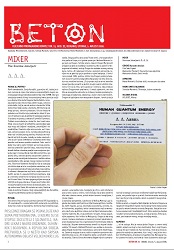
MIXER, Branislav Jakovljević: ∆. ∆. ∆.; CEMENT/Karaoke obračun, Film Seks & grad, Aleksandar Pavlović: Figuracija nove zajednice, Aleksandra Kostić: Seks i moda; ARMATURA, Vesna Ninković: Da biste došli, morate prvo da odete; VREME SMRTI I RAZONODE, Tomislav Marković: Tihovanje, ludom radovanje; BULEVAR ZVEZDA, KOLJEVIĆ, Nikola
More...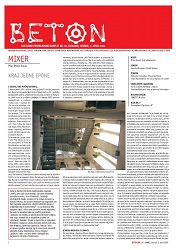
MIXER, Mirko Kovač: Kraj jedne epohe; CEMENT, Jasmina Vrbavac: Krljušti ljubavi; ŠTRAFTA, Slobodan Georgijev: Otvaranje Ključa, Srđan Nastasijević: Dok nas pretplata ne rastavi; VREME SMRTI I RAZONODE, Darko Cvijetić: Kafkanje u mjestu, Tomislav Marković: Tako je govorio Galimatijas; BULEVAR ZVEZDA, EKMEŠIĆ, Milorad; BLOK BR. V, Kosmoplovci: Syndrom „A“
More...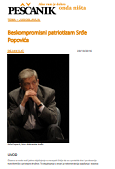
Čitaocu se ovde nudi jedno objašnjenje za neuspeh Srbije da se u protekle dve i po decenije transformiše u pristojno društvo. To objašnjenje u stvari je rekonstrukcija zapažanja i stavova pravnika i javnog intelektualca Srđe Popovića (1937-2013). Svoje viđenje događaja i kretanja u postsocijalističkoj Srbiji on je iznosio uglavnom u intervjuima, ponekad u kraćim autorskim tekstovima. Na prvi pogled rasuta i nesređena, jer u njoj nema nijedne duže i obuhvatnije studije, ta intelektualna ostavština u stvari precizno identifikuje, opisuje i objašnjava domaće tranzicione probleme. Jednako tako ona daje predloge za njihovo otklanjanje.
More...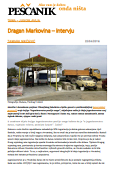
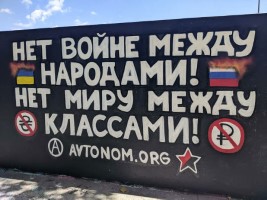
Da je 1941. postojao internet, ne bi Tito i Partija, unatoč nadnaravnim sposobnostima o kojima će moja generacija kasnije učiti u školi, uspjeli dignuti narod na ustanak protiv fašističkog okupatora. Umjesto da uzmu puške u ruke i krenu po šumama i gorama, svi bi mladi partizani i partizanke samo guglali i surfali po internetu. Samo ukucaš „što je fašizam“ i ukažu ti se brojne istine. A ti fino kao slobodni individualac biraš istinu kao vakcinu koja štiti i tebe i druge, ili nećeš vakcinu pa zaraziš druge. Tako po dizajnu sajta i instinktu izabereš istinu koja ti odgovara, pa šalješ dalje i postupaš po tome. Ali 1941. je to, pa dok nađeš tu svoju prikladnu istinu, prođe historijski moment da se mobilizira narod za revoluciju i gradi savršena Jugoslavija. Ili ti u sobu dok klikćeš mišem upadnu fašistički štakori i odvedu te u konclogor.
More...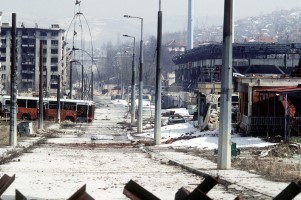
Rat u Ukrajini preobražava čovječanstvo pred našim očima. Mislili smo da je ovakav rat nemoguć u 21. vijeku i da će svijet mirno poći u eru slobode, blistavog napretka, planetarne solidarnosti i izobilja za sve; a nakon jezivih prizora brutalnog razaranja ukrajinskih gradova, bombardiranja civila, žrtava na ulicama, izbjegličkih kolona – jasno je da svijet juri u katastrofu. Iako je svaki sukob drugačiji, skoro sve priče su svuda iste. Ljudi žele da žive u miru i često ne obraćaju pažnju na dinamiku događaja koji vode ka ratu. A, rat kad počne, veoma je teško zaustaviti ga.
More...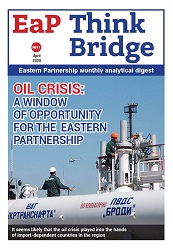
The sharp collapse in world oil prices has opened a new window of opportunities for most of the Eastern Partnership countries. This is a chance for the “association club” countries to comply with European requirements and create the necessary energy stocks with minimal budget expenditures. In addition, the crisis has shown the importance of developing the infrastructure that connects the states of the region. The first batch of Azerbaijani oil was delivered to Belarusian refineries via Georgian and Ukrainian ports and Ukrainian oil pipelines and became a trump card in the negotiations between Minsk and Moscow. How has the oil crisis affected Russia’s behavior in the region? And what new opportunities do the Eastern Partnership countries face? We analyzed in the current issue. Nevertheless, the focus in the region, as well as in entire world, in April remained on combating the coronavirus pandemic and its economic and social consequences. Although countries are slowly starting to lift quarantine restrictions, the situation is far from normal. Azerbaijan has already felt a serious blow in the banking sector. In Armenia, small and medium-sized businesses received only a tiny share of promised support from the state. Belarus, contrary to the epidemic, held a national Saturday clean-up and is preparing for the May 9 parade. The capital is still closed in Georgia and curfews are in effect. In Moldova, the coronavirus has aggravated the domestic political crisis while the Constitutional Court blocked the package of anti-crisis measures adopted by the government. Meanwhile, in Ukraine, the governmental team faces staff shortages All the main April developments in the region are analyzed in our latest digest. //// CONTENT: Analytica: Oil Crisis: a Window of Opportunity for the Eastern Partnership // Azerbaijan: Supreme Court Discharged Two Opposition Members // Armenia’s Gradual Reopening // Coronavirus in Belarus: Controversial Decisions and European Solidarity // Georgia Gradually Comes out of Quarantine // Moldova: Economic Recession Seems Inevitable // Corona Crisis in Ukraine: Long-term Consequences are Inevitable
More...